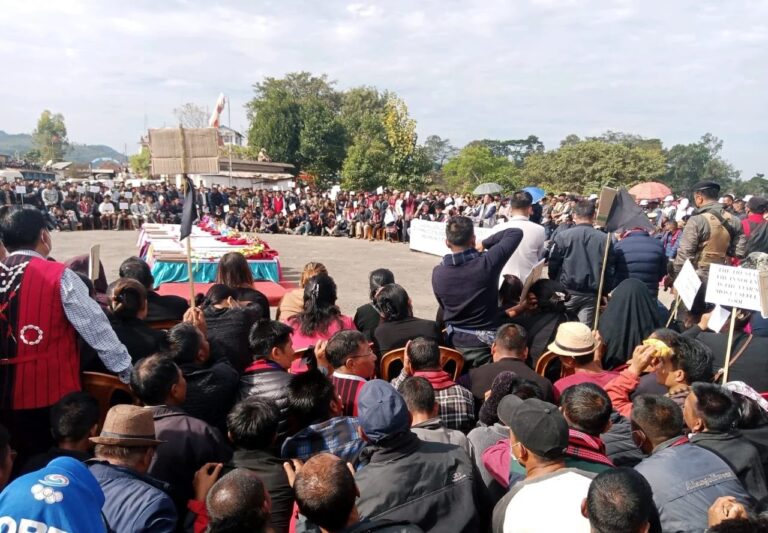Arunachal Pradesh Man Sentenced to Death for Sexual Assault of 21 Children: A Detailed Look at the Case
Summary
A POCSO (Protection of Children from Sexual Offences) court in Arunachal Pradesh has sentenced a man to death for the sexual assault of 21 children at a hostel. The case is one of the most disturbing examples of child abuse, and the court’s verdict marks a significant step in addressing child sexual crimes. The harsh penalty highlights India’s increasing commitment to tackling such heinous offenses and protecting vulnerable children.
Introduction: The Dark Shadow of Child Abuse
When we talk about safety, especially for children, we hope that schools and hostels, the places they frequent, provide them a haven of protection and nurturing. However, in one of the most horrifying cases to come out of Arunachal Pradesh, the very place that should have been safe became the epicenter of abuse for 21 children.
The man convicted in this case was responsible for traumatizing these innocent lives, and the justice system took a decisive step by sentencing him to death. But what led to such a harrowing situation, and what does it signify for the future of child protection in India? This article delves deeper into the case, the legal proceedings, and the broader implications for child safety in India.
The Case: A Shocking Discovery
In what can only be described as an appalling series of events, the accused, a hostel warden, sexually assaulted 21 children over a period of time. The victims, aged between 5 and 12, were students at a hostel where they should have been safe under his care.
The Role of the POCSO Act
The case was tried under the POCSO (Protection of Children from Sexual Offences) Act, one of the most stringent laws in India when it comes to dealing with crimes against minors. The POCSO Act was implemented in 2012 with the intent to provide legal protection for children from sexual offenses, including assault, harassment, and pornography. The act ensures special courts are established for swift justice, as happened in this particular case.
The Legal Process: Swift and Decisive
The POCSO court took just a few months to conclude this case, highlighting the importance of quick legal intervention in child abuse cases. Evidence was gathered from the victims, and the testimonies were crucial in securing the conviction. The court emphasized the severity of the crime, noting that it called for nothing less than the death penalty to serve as a deterrent.
Why Such Cases Continue to Haunt India
While the punishment in this case may seem fitting for the magnitude of the crime, the larger question remains: why do such heinous acts continue to happen? India has made significant strides in child protection, but loopholes in implementation and societal silence often create an environment where such abuses go unnoticed for too long.
Gaps in Awareness and Education
In many parts of the country, especially rural and remote areas like Arunachal Pradesh, there is limited awareness of child protection laws. Hostel owners, school administrators, and even parents may not be fully educated on the signs of abuse or the mechanisms available for reporting it. This creates a dangerous gap where children, who often don’t fully understand what’s happening to them, suffer in silence.
The Need for Background Checks and Monitoring
One of the critical failures in many of these cases is the lack of proper background checks for those who are placed in positions of authority over children. In this instance, the accused was entrusted with the safety of vulnerable children. Regular monitoring and accountability for individuals in such roles can prevent these tragedies from occurring.
The Role of the POCSO Act in Ensuring Justice
The POCSO Act has been pivotal in changing the way India approaches cases of child sexual abuse. By setting up special courts to handle such cases, the act ensures that the judicial process is fast-tracked. Additionally, the act places a burden on adults to report any known offenses, making it a legal obligation.
Why the Death Penalty in This Case?
India’s laws around the death penalty are strict, and it is usually reserved for the rarest of rare cases. The court, in this instance, determined that the nature of the crime—the repeated sexual assault of multiple minors—warranted the highest form of punishment. While some might argue about the morality or effectiveness of the death penalty, the court’s decision sends a clear message: child abusers will not be tolerated.
The Psychological Impact on Victims
The trauma inflicted on the victims of sexual abuse, especially at such a young age, can be life-altering. These children, already vulnerable, now carry the scars of this abuse into their futures. The psychological consequences of such trauma often manifest in depression, anxiety, and trust issues, which can severely impact their personal and professional lives as they grow older.
Healing and Rehabilitation for Victims
Counseling and psychological support are crucial for these children to heal from the horrific experiences they endured. While the legal system ensures that the perpetrator is punished, it is equally important that victims receive long-term emotional and mental health support. India’s child protection systems need to invest more in post-trauma care to ensure that survivors can reclaim their lives and futures.
What This Case Means for Child Protection in India
The sentencing in this case is a landmark moment in the fight against child sexual abuse in India. It highlights the judiciary’s commitment to protecting children and delivering justice swiftly. However, it also raises several questions about the preventive measures that should be in place to avoid such incidents from occurring in the first place.
Strengthening Institutional Accountability
Hostels, schools, and other institutions that cater to children need stricter regulations and more regular inspections to ensure the safety of their wards. Every individual who works with children should undergo thorough background checks and psychological evaluations to ensure that they are fit for the role.
The Importance of Reporting Mechanisms
Many cases of child abuse go unreported due to fear, stigma, or a lack of proper reporting mechanisms. The government must work towards creating more child-friendly and anonymous channels through which abuse can be reported without fear of retaliation. Additionally, schools and hostels should educate children on their rights and how they can report inappropriate behavior.
Conclusion: A Step Towards Safer Environments for Children
While the Arunachal Pradesh POCSO court’s verdict is a victory for justice, it’s also a grim reminder of the dangers children face. Every child deserves to grow up in a safe environment, and it’s up to society as a whole to ensure that these environments are nurtured.
The death sentence for the man responsible for the assault on 21 children is a powerful statement. But more needs to be done to prevent these situations from occurring in the first place. By creating better awareness, ensuring accountability in child institutions, and providing psychological support for victims, India can hope to build a future where children no longer have to fear the very people entrusted with their care.
FAQs
- What is the POCSO Act?
The POCSO (Protection of Children from Sexual Offences) Act is a comprehensive law in India designed to protect minors from sexual abuse and provide a framework for swift justice through special courts. - Why was the death penalty awarded in this case?
The court deemed this case as one of the “rarest of rare” due to the repeated sexual abuse of multiple children, making the death penalty the appropriate punishment. - How can institutions like hostels and schools prevent such incidents?
Regular background checks, stricter regulations, proper supervision, and creating awareness among children about reporting abuse can help prevent such cases. - What kind of support do victims of child sexual abuse need?
Victims require immediate psychological counseling, long-term emotional support, and a safe environment to heal and recover from their trauma. - How prevalent is child sexual abuse in India?
Unfortunately, child sexual abuse remains a significant issue in India, with many cases going unreported. However, laws like the POCSO Act are helping bring more cases to light and deliver justice.


